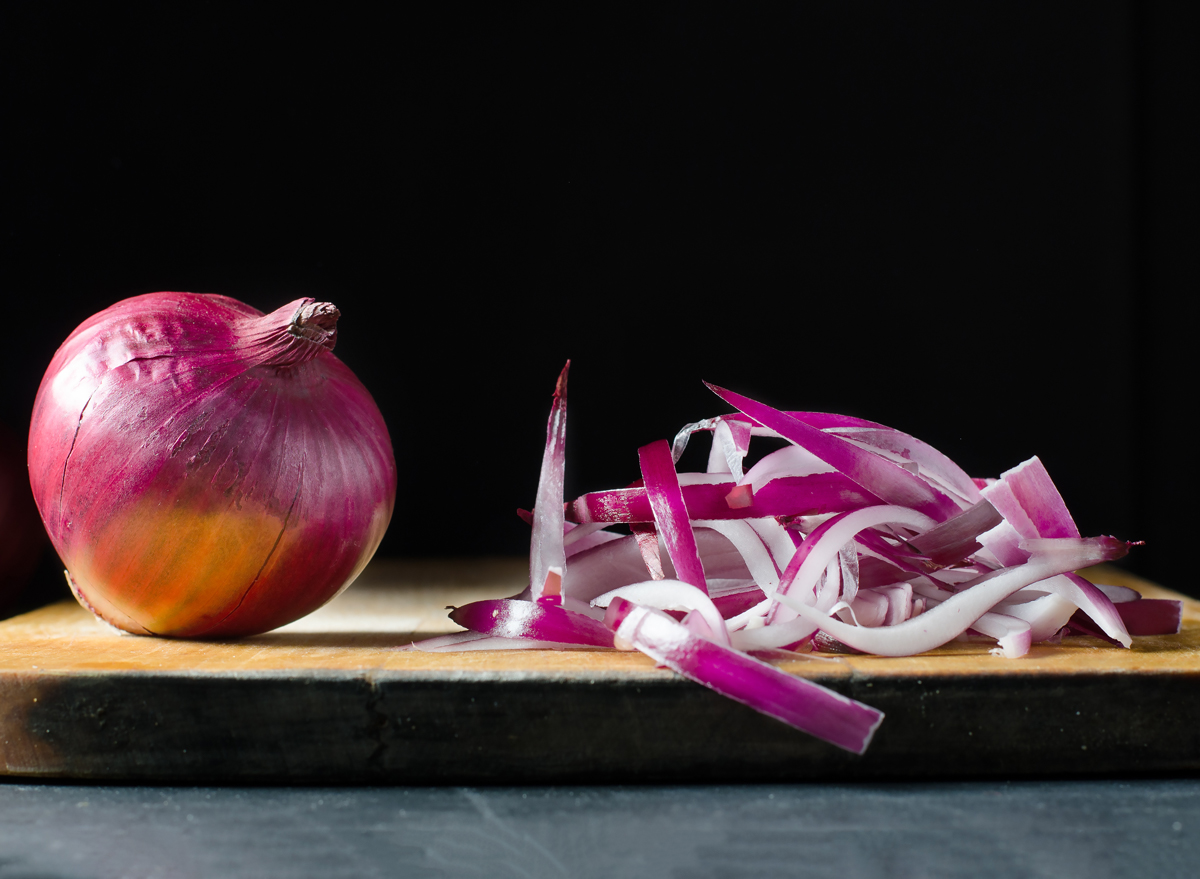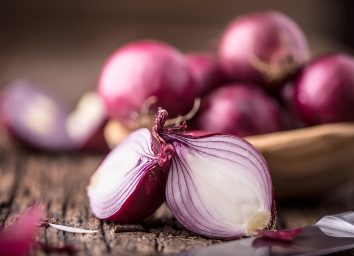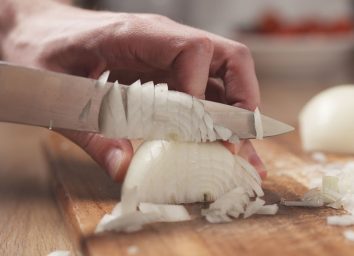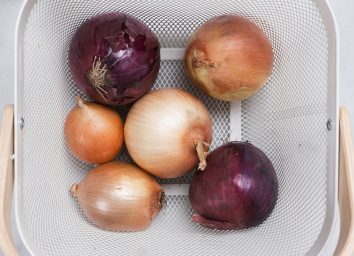One Major Side Effect of Eating Onions, Say Dietitians

How many dinner recipes have you prepared that don't contain onions? Not very many? We thought so. To us, onions (and garlic) are like salt and pepper when it comes to cooking—they don't necessarily stand out as an overwhelming flavor, but they do make any dish taste better.
We're not only fans of onions because they taste good, we're also big fans of their health benefits. What Happens To Your Body When You Eat Onion? A lot of good:
"Onions are packed with antioxidants and anti-inflammatory compounds that reduce the risk of heart disease, lower high blood pressure, and protect against blood clots. They're also great, calorie-free flavoring agents for food," explain Eat This, Not That! Medical Expert Board members and registered dietitians Lyssie Lakatos, RDN, and Tammy Lakatos Shames, RDN, known as The Nutrition Twins.
Despite their essential role in cooking and awesome benefits for your health, there is one side effect of eating onions that is worth being aware of before you slice open your next allium: for some people with sensitive digestive tracts, onions may cause bloating, cramping, and gas. (Related: The One Hack For Cutting Onions, According to an Expert.)
"For some people who have a hard time digesting them, especially people who have irritable bowel syndrome (IBS), onions can cause painful gas, cramping, and bloating due to their soluble fibers called fructans (oligosaccharides); these fermentable carbs are poorly absorbed in the small intestine," say The Twins.
Experts estimate that only 5-15% of fructans are digested in the small intestine. The remaining carbohydrates make their way down to the colon where they are fermented rapidly. This rapid fermentation can cause a little extra gas, but for those with IBS, this can cause severe bloating, cramping, abdominal pain, and uncomfortable bowel movements.
IBS affects 1 in 7 people, according to Monash University researchers, who are pioneers of the Low-FODMAP Diet: a diet that is low in fermentable oligosaccharides, disaccharides, monosaccharides, and polyols, which are short-chain carbohydrates (sugars) that the small intestine absorbs poorly. If you have developed a FODMAP sensitivity and notice that onions have been giving you extra gas, it might be worth connecting with a registered dietitian or health professional to discuss your options, one of which may be to reduce your intake of similar foods or to test for small intestinal bacterial overgrowth (SIBO).
"Fermentable carbs, like those found in onions, are known as FODMAPs," say The Twins. "Restricting high-FODMAP foods can provide massive gut relief for people who are sensitive to them. Even in very small quantities, onions can cause digestive issues. And although cooked onions seem to be better than raw, both can wreak havoc on sensitive digestive tracts," they add.
If you are sensitive to onion, but you're still looking for its flavor in your cooking, there's no need to fret—just try this food hack.
The fructans in onions that cause sensitivities are soluble only in water. That means that when cooking onions in soup or stock, that fructan content will leak out into the water, which can then result in digestive discomfort when you then consume that food. The alternative is to simmer your onions in oil.
"In an oil-based dish, the fructans will not leech out (as fructans are not soluble in oil). Therefore, if you are making something based in oil, for example a stir-fry, it is possible to add a large piece of onion or a whole garlic clove and simply pull the pieces out before adding other ingredients. This way you will have the [flavor] without the fructan content leaching into the meal," according to The Monash University FODMAP Blog.
If you haven't noticed any bloating or cramping when eating onions, then there's no cause for concern. But if you have experience digestive issues after consuming this allium, it's worth connecting with a medical professional. Left unaddressed, you will continue to experience these uncomfortable side effects. To learn more about onions, see Here's How You Should Be Storing Leftover Onions.
For more healthy eating news, make sure to sign up for our newsletter!








